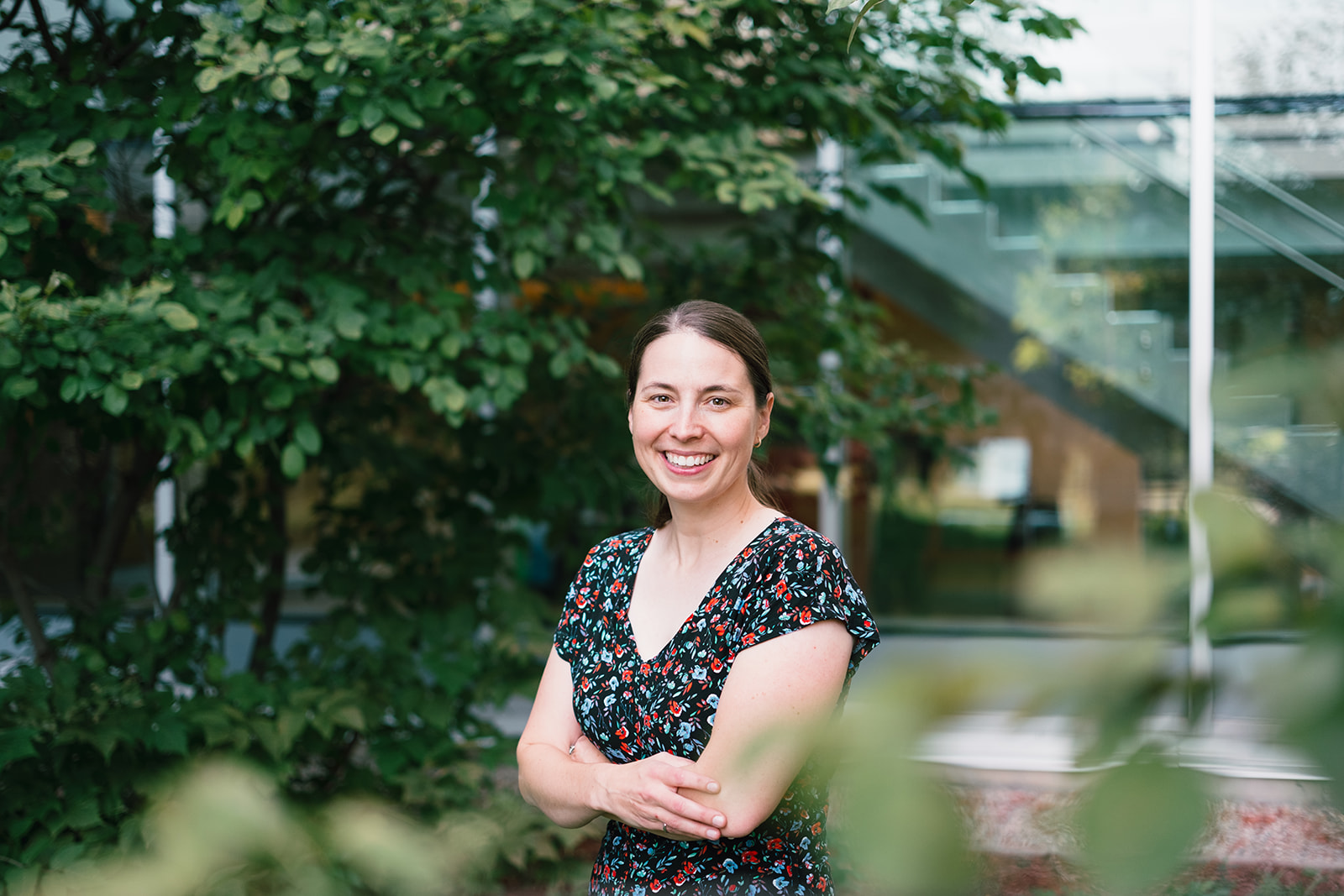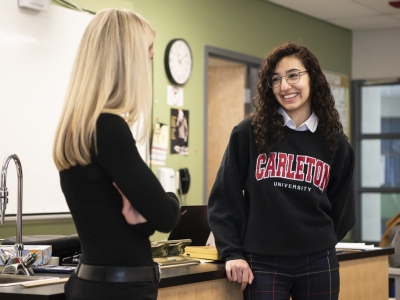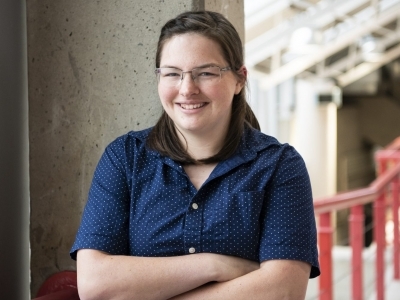By Joseph Mathieu
Throughout 2023, the Faculty of Engineering and Design (FED) has moved forward on its commitments to equity, diversity and inclusion (EDI) just as Carleton has continued its EDI commitments across the university as a whole.
The Carleton University EDI Action Plan touches on every aspect of the institution. This allowed FED the chance to create its own tailored plan to identify concrete actions toward tangible outcomes that directly impact its staff, leadership, students and communities.
Professor Cynthia Cruickshank Announced Associate Dean of EDI
One such outcome is the appointment of Mechanical and Aerospace Engineering Professor Cynthia Cruickshank as Associate Dean (EDI). In this role, Cruickshank will oversee and report on, as well as guide, the processes and plans set in motion through the FED EDI Action Plan. She will grow the initiatives and programs that already provide training, representation, mentorship and development of equity-denied groups.
“FED strives to create a collaborative environment that is inviting, supportive and inclusive,” she says. “In my new role, I will place a significant emphasis on increasing the role and recognition of under-represented groups in engineering and design programs and careers.”
Cruickshank is the Director and Lead Researcher of the Centre for Advanced Building Envelope Research (CABER), which conducts research on how to build more resilient, healthy and energy-efficient buildings in Canada. She is also a long-time champion of women and girls in STEM and she plans to use the FED EDI Action Plan as a roadmap to help reduce systemic and attitudinal barriers into engineering and design.
“There has been progress in this area,” says Cruickshank, “but a lot of work remains, especially for women from equity-denied backgrounds.”

Since 2018, Cruickshank has been Carleton’s Ambassador for Engineers Canada’s 30 by 30 Initiative, which aims to increase the percentage of newly licensed engineers who are women to 30 per cent by the year 2030. Cruickshank is also recognized across Canada for her participation in STEM initiatives that support women, persons in visible minority or racialized groups, Indigenous Peoples, 2SLGBTQQIA+ members and persons with disabilities.
Over the past 10 years, she has delivered 20 talks related to EDI, outreach and engagement to students, faculty and the public with an emphasis on women in STEM fields. To expose high school students to the many different careers that exist for women in engineering, she has given talks through Carleton’s Women in Science and Engineering group.
“I strive to be a strong mentor and role model for women students who want to pursue a career in STEM without compromising their personal life,” she says. “Simply put, if girls don’t see people who are like them in STEM, how are they to imagine themselves in that role in the future?”
As FED’s Associate Dean (EDI), Cruickshank will continue her work as a visible, active leader and advocate for equity-deserving groups at Carleton. This work is anchored by the Action Plan’s vision, which highlights how equity, diversity and inclusion foster, “innovation and collective resilience by engaging the full potential of everyone within our community [and] by providing a feeling of belonging and opportunities to thrive.”

A few of the women graduate-level students who run study sessions for other women in STEM at Carleton University. This initiative is part of FED’s Women in Engineering and IT Program, aimed at helping to build bridges between women in university and the workforce.
Cultivating a Culture of Belonging
To promote under-represented groups and reduce barriers of entry, Cruickshank also plans for FED students, staff and faculty to receive training on unconscious or implicit bias, historical and current EDI deficiencies, and the value of diversity.
Other initiatives include a teaching toolkit for instructors that would provide engineering and design faculty and teaching assistants with the knowledge and skills to integrate EDI content in their courses and to make their courses more inclusive. Another will be a peer support network for researchers and graduate students from equity-denied backgrounds to exchange support and gain a larger sense of belonging.

A photo taken at a male allyship in STEM panel, held at the university in January 2020. The specialized panel discussion on the roles and responsibilities men can have in creating a positive and sustainable impact in support of women in science and engineering.
Many of FED’s EDI initiatives forge connections between equity-denied group in training and established leaders in industry. Programs like the ELITE Program for Black Youth and the Women in Engineering and Information Technology (WiE&IT) program offer internships, experiential learning and mentorship.
These kinds of programs will be bolstered by the Action Plan, as well as initiatives like Virtual Ventures’ annual National Indigenous Youth in STEM (InSTEM) Educator Land Camp in Akwesasne, which integrates STEM knowledge with Indigenous Knowledge and ways of knowing in partnership with Actua.
Promoting diversity and reducing barriers of entry for equity-seeking communities is good for everyone. The long-term success of a program, a school and even an industry can hinge on the creativity and innovation made possible by a wealth of perspectives from all walks of life.
“Engineering and design is really about reshaping the way you look at problems,” says Cruickshank. “Just as multi-disciplinary projects benefit from multiple viewpoints, the personal experiences of different individuals can result in diverse ideas and influence how we approach engineering and design challenges.”

Photo taken at a 2022 visit of Virtual Venture’s Land Camp. Over the ten-day camp, youth built an Indigenous encampment consisting of traditional structures.
Wednesday, October 4, 2023 in Experiential Learning, Faculty, Feature Stories, Graduate, Interdisciplinary, Lead Feature Story, Undergraduate, Virtual Ventures, Women in Engineering, Youth Outreach
Share: Twitter, Facebook



